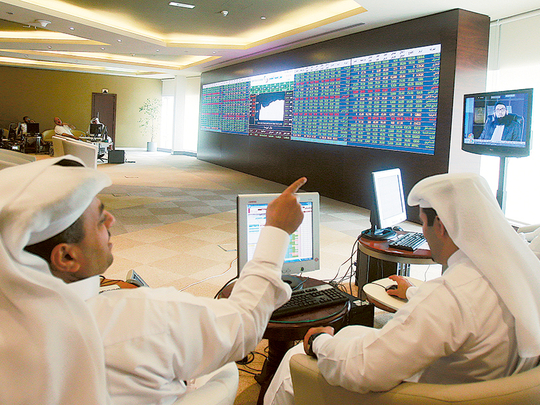
Dubai: With the MSCI upgrade, equity markets in the UAE and Qatar have been integrated with global capital markets, throwing open the door for local and regional companies here to tap international financing, said an expert.
This could help in diversifying source of funding, Salah Shamma, head of investment at Middle East and North Africa (MENA) equities at Franklin Templeton Investments Corp told Gulf News.
The global index provider, MSCI, officially upgraded the UAE and Qatar markets to an emerging market from frontier market, after announcing the move in June 2013.
Integrating the local markets with global capital markets has a number of benefits, he said.
"We cannot operate in a void or in a circumstance where we are detached from outside world. Further integrating with the international bourses is a prerequisite as it offers diversified source of financing and funding for the economy,” Shamma said over telephone.
The inclusion also helps local companies -- and thereby the economy.
“Local companies cannot rely on local liquidity, whether it is from the banks or governments. They need to able to tap global liquidity and, usually, that lies in the form global equity or debt markets.
"As we integrate into international markets, you invite global liquidity, and the liquidity picture improves and even the investor base is much more diversified. With the international capital, we also get to adopt and experience global best practices and reforms," he said.
Optimistic
Franklin Templeton, which had about $894.9 billion of assets under management until April 2015, is quiet optimistic on the UAE economy, which derives only about a quarter of the Gross Domestic Product (GDP) from oil revenues.
“We are quiet optimistic about UAE economy in the MENA region and it offers an attractive proposition and the economy is very well diversified and it has the lowest exposure to oil. from an investment point of view,” said Shamma.
This optimism would reflect on the attractiveness of the equity markets and the valuations of companies.
“We believe the markets remain attractive. We think the markets offer us very interesting exposure to different sectors. We are optimistic on banking sector and some of the real estate names despite a slowdown in real estate transactions and pricing. There is still a lot of value in these investment,” Shamma added.
Most of the index on the Dubai Financial Market and Abu Dhabi Securities Exchange is dominated by real estate companies and banks, which are not expensive at current levels.
The market is not expensive at current levels. We are quiet optimistic about the dynamics of the economy, and they are the fundamentals that drive the valuations. Growth and earnings still justify the valuations, Shamma said.
Risk profile
The UAE market is one of those markets which offers investors growth prospects of an emerging market but with a developed-market risk profile.
“If we take a look at emerging market landscape, as not many economies offers 40 per cent growth profile, and we have very low debt. This is a US-dollar pegged economy. This is an ideal environment at a time when investors are becoming much more risk averse,” Shamma said.
Franklin Templeton tries to battle to with the preconceived notion of the UAE markets as an oil play, but Shamma said the market offers investors much more than that.
“UAE economy is very well poised to benefit from increase in demand through tourism, hospitality. Population increase in Dubai and Abu Dhabi would continue to support real estate prices and construction activity. With lower oil prices, the economy is very well positioned to mitigate the risk for a considerable period of time as they have considerable reserves, and the economy still hasn’t tapped the debt market,” he added. The UAE has about $3 trillion in reserves.
Buyers in November fall
Franklin Templeton were net buyers in November and December last year, when the index shed more than 33 per cent in value.
“During the drop in UAE indices in November and December, that was a very good time to come in and start building positions which we at Franklin Templeton did and benefited from the rebound that we saw afterwards,” Shamma said.
“As long we don’t see lower earnings and its effect on companies that we cover due to lower oil prices, we should not be concerned at this juncture,” he added.
Meanwhile, Dubai index is up 50 per cent since the announcement of the upgrade by the MSCI, which happened in June 2013.
MSCI standing
“If the government further increases the cap on foreign ownership from the current 49 per cent. Our standing in the MSCI index would increase and the weightage would also get increased, something that would get further liquidity in the market,” he added.
He also expects the changes in the listing requirements to help spur the primary market in the second half of the year. The minimum listing requirement was slashed to 30 per cent from 55 per cent by the regulator in April.












